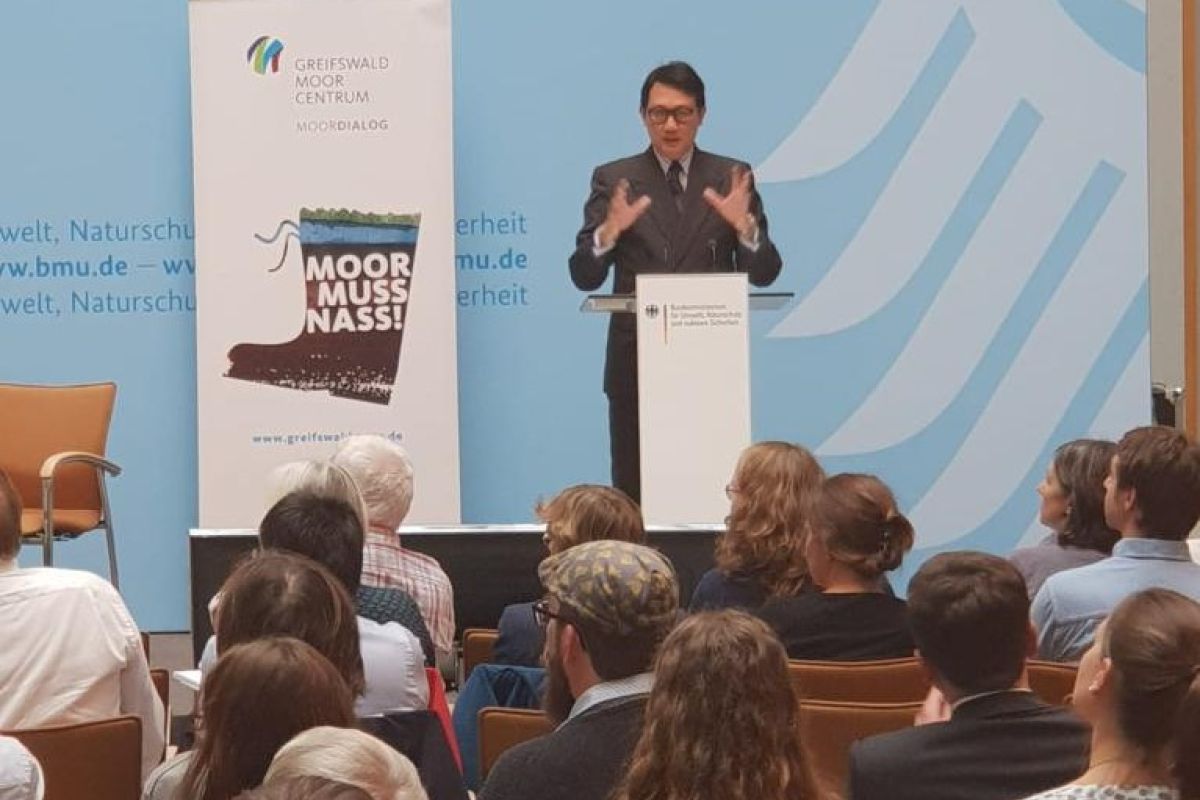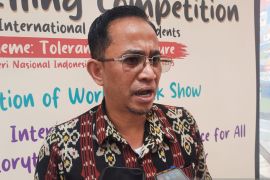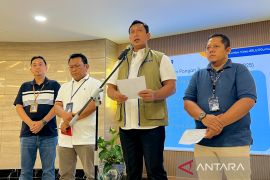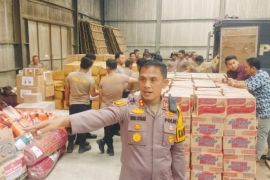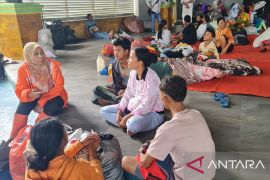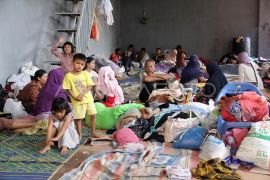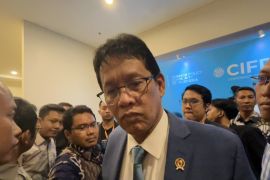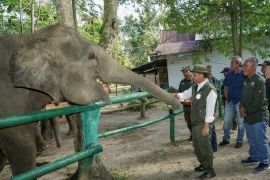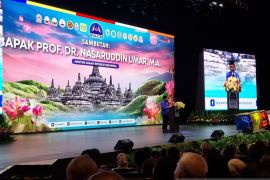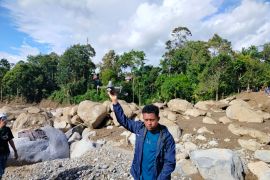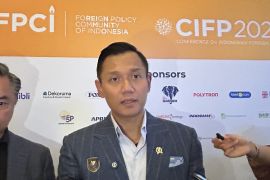Indonesia`s peatlands store a huge amount of carbon of up to 60 billion metric tons, which makes it a virtual carbon bomb. Globally, the amount of carbon held in tropical peat is around 88.6 billion metric tons.
Peatlands also act as giant sponges, soaking up water and helping to mitigate flooding.
During the dry season, peat releases water slowly and can be a source of fresh water for surrounding communities.
Indonesia`s peatlands are also habitats for endangered species such as orangutans and tigers.
The country used to have 22.5 million hectares of peatlands, but nearly half of them have already been deforested and drained.
Given the important functions of peatlands globally, Indonesia and the Republic of Congo and the Democratic Republic of Congo have joined with international organizations to push forward a sustainable peatland agenda at a launch event for the new International Tropical Peatland Center (ITPC) in Jakarta on Oct 30, 2018.
The three countries - all home to extensive areas of tropical peatland - comprise the founding member states of the center, which are expected to become a holistic platform for peatland science and practice.
ITPC is also a center for information and knowledge about peat management that can be accessed by countries across the world.
When managed sustainably, tropical peatlands offer not only substantial environmental gains but also potential livelihood benefits to those living in and around them.
During the event, Indonesia`s Environment and Forestry Minister Siti Nurbaya Bakar, the Republic of Congo`s Tourism and Environment Minister Arlette Soudan-Nonault, and the Director General of Forest Resources for DRC`s Ministry of Environment and Sustainable Development Jose Ilanga Lofonga launched an interim secretariat ahead of the formation of the center itself within one year.
ITPC is a real effort by the Indonesian government to be consistent in maintaining the sustainability of the peat ecosystem, according to Bakar.
It will be a learning center for other countries who want to know about tropical peat and how to restore and manage the ecosystem for the benefit of the world`s environmental in the future.
The Indonesian Forestry and Environmental Research Development and Innovation Agency (FOERDIA), together with the Center for International Forestry Research (CIFOR) in Bogor, will function as the ITPC Secretariat.
ITPC also plans to establish field sites in South Sumatera, West Kalimantan, Riau, Jambi, and Central Kalimantan.
"If we cannot conserve peatlands, there is no way we can win against climate change," said Erik Solheim, head of UN Environment, during the inauguration of the center.
Effectively protecting peatlands would represent a "triple win" for humanity, he explained - benefiting people and their health, the environment, and the economy.
So far, Indonesia has done many researches on peat. These studies will be available at the ITPC.
The Indonesian government also invites countries that have tropical peatlands, as well as international scientists and collaborators, to join the ITPC to increase knowledge and protect the ecosystems.
The initiative of Indonesia`s peat management comes from President Joko Widodo, who had previously initiated to establish the Peat Restoration Agency (BRG), Bakar revealed.
As the first activity of ITPC, in collaboration with FOERDIA and BRG, as well as support by International Peatland Society (IPS) and the Japan Peatland Society (JPS), a Tropical Peatland Roundtable Discussion was organized in Batam, Riau Islands Province, from Nov 12 to 16, 2018, to bring Jakarta Declaration into action.
Meanwhile, global peat expert from Griefswald Moor Centrum Germany Professor Hans Joosten stated that Indonesia has successfully outperformed Europe in restoring peatland as green areas that support the absorption of carbon.
"What Indonesia has done in restoring peatland is more than what Europe has done throughout history," Joosten remarked, as cited in the statement from the Indonesian Embassy in Berlin, Germany, recently.
Joosten made the statement in response to Indonesia`s experience in restoring peatlands, as told by Indonesia`s Ambassador to Germany Arif Havas Oegroseno, who was invited as one of the panelists in the European Peat Dialogue held in Grieswald Moor Centrum and Germany`s Ministry of Environment on Oct 26.
Oegroseno also noted that Indonesia`s experience in restoring peatlands, through an intensive, systematic, and structured program by BRG, has resulted in the wetting of over 200 thousand hectares of peat in just one year.
Earlier, BRG had claimed that fewer hotspots were found in the peatland area under its restoration program through the 3Rs approach (rewetting, revegetation, and livelihood revitalization).
BRG Chief Nazir Foead noted on Oct 17, 2018, that the intervention, which included peatland rewetting by establishing canal blocks, building artesian wells, and livelihood revitalization by making fish ponds and farms, had successfully reduced the number of hotspots.
Public involvement in the projects, according to Foead, has played an important role in increasing awareness over hot spots.
BRG has targeted to complete its intervention on 600 thousand hectares of peat land area in 2017-2018.
The remaining 400 thousand hectares of peatland, from the total 2.4 million hectares of peat land prioritized for restoration within five years since 2016, would be completed in 2019-2020.
Reporter: Fardah Assegaf
Editor: Yosep Hariyadi
Copyright © ANTARA 2018
